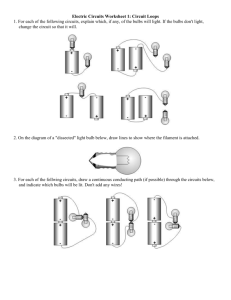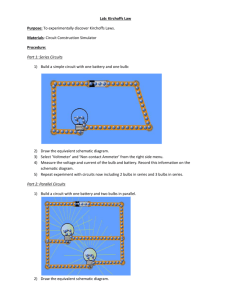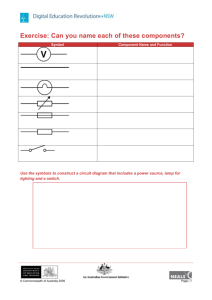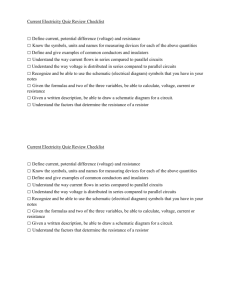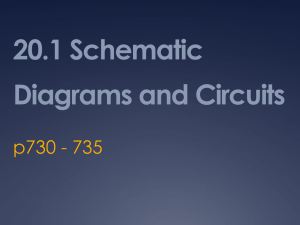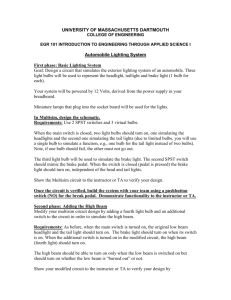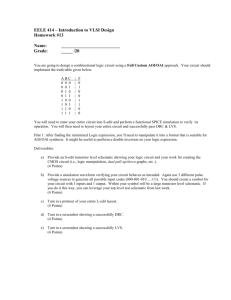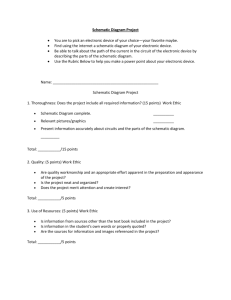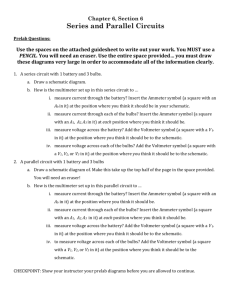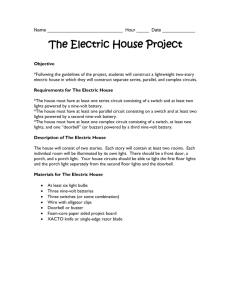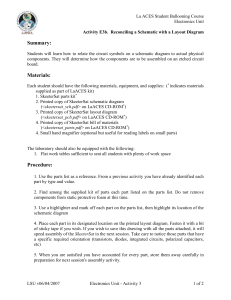schematic symbols reading
advertisement
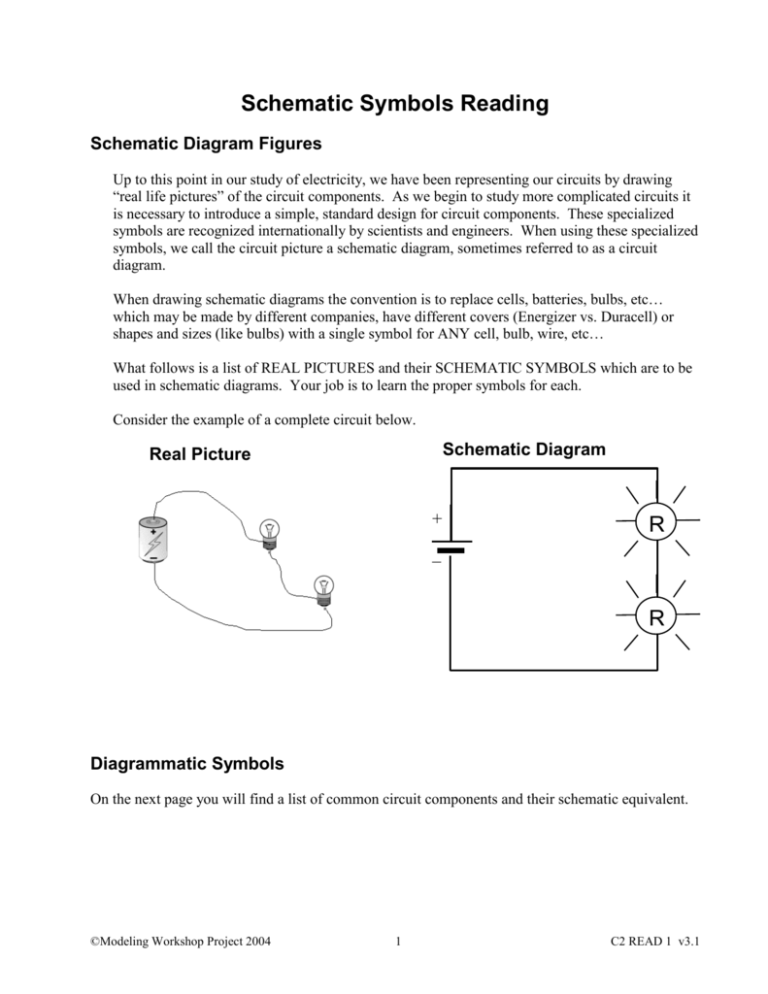
Schematic Symbols Reading Schematic Diagram Figures Up to this point in our study of electricity, we have been representing our circuits by drawing “real life pictures” of the circuit components. As we begin to study more complicated circuits it is necessary to introduce a simple, standard design for circuit components. These specialized symbols are recognized internationally by scientists and engineers. When using these specialized symbols, we call the circuit picture a schematic diagram, sometimes referred to as a circuit diagram. When drawing schematic diagrams the convention is to replace cells, batteries, bulbs, etc… which may be made by different companies, have different covers (Energizer vs. Duracell) or shapes and sizes (like bulbs) with a single symbol for ANY cell, bulb, wire, etc… What follows is a list of REAL PICTURES and their SCHEMATIC SYMBOLS which are to be used in schematic diagrams. Your job is to learn the proper symbols for each. Consider the example of a complete circuit below. Schematic Diagram Real Picture + R _ R Diagrammatic Symbols On the next page you will find a list of common circuit components and their schematic equivalent. ©Modeling Workshop Project 2004 1 C2 READ 1 v3.1 Name Real Picture Symbol Single cell + - Battery (three cells) ** note – a battery is a combination of cells. You can make a battery with as many cells as you want – just keep adding single cells together! - + Round Bulb (not lit) R Round Bulbs (Lit) ** Note – any kind of “rays” emanating from the bulb are good enough to indicate the bulb is lit R Long Bulbs (Not Lit) L Long Bulbs (Lit) L Capacitor Compass Resistor ©Modeling Workshop Project 2004 2 C2 READ 1 v3.1
